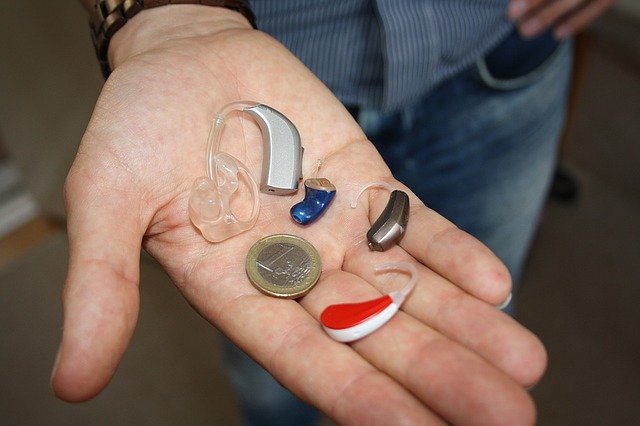Having difficulties understanding what others are saying or frequently asking people to repeat themselves can not only be frustrating but can also be a sign of hearing loss.
Hearing loss can have a huge impact on your life, negatively affecting your emotional well-being, work, and relationships.
Wearing hearing aids can help improve your hearing, improving your quality of life.
However, after getting your hearing tested and your audiologist prescribes hearing aids, you should choose the right one to reap maximum benefits. That’s because hearing aids vary greatly in terms of size, special features, prices, and how they’re placed in the ear.
Here are some important things to consider when buying hearing aids to ensure you pick the right one for you:
1. Size and Style
Hearing aids come in different sizes and styles. Choose the right type of hearing aids based on your age and the severity of your hearing loss.
For instance, invisible-in-canal aids and completely-in-the-canal hearing aids make great style choices for adults with mild to moderate hearing loss.
Behind-the-ear (BTE) hearing aids make a great option for people of all ages and with any level of hearing loss. In contrast, the open-fit hearing aid style is ideal for those with mild to moderate high-frequency and low-frequency hearing loss.
If you have severe hearing loss, you can benefit the most from wearing in-the-canal aids or low-profile ITE hearing aids.
It’s also important to ensure you choose the right size of hearing aids since they’re available in different sizes.
That’s important because some aids can take up more space in the ear outside the canal, making them more visible. While others are more discreet yet they perform incredibly well. Work with your audiologist to find a hearing aid that’s easy to handle and fits your ear comfortably.
2. Features
Hearing aids come with a wide range of special features that can benefit your lifestyle.
These features include automatic volume controls, Bluetooth capabilities, noise and feedback reductions, directional microphones, extended-life batteries, and many more.
Choose a hearing aid with the most important features for your kind of lifestyle.
For instance, if you enjoy watching movies or listening to music, you may want a device with wireless connectivity or waterproof devices to ensure you enjoy your hobbies while wearing them.
3. Cost
The cost of your hearing aids can vary greatly, ranging from about $1500 to several thousand dollars, depending on the type, level of technology, and features included.
If you’re on a limited budget, you need to determine what features you need the most to improve your hearing.
This can help you choose a hearing aid device with all the features you need within your budget. Your audiologist can also recommend the right hearing aids for your budget. They also offer different financing options and often accept credit card payments, making it easier to cover the cost of your hearing aids.
Shop around to ensure you find the best devices for your hearing problem at an affordable price.
Endnote
Use the tips mentioned above to help you choose the right hearing aids for your specific hearing difficulties and needs.
However, your audiologist can work with you to find the best hearing aids based on your unique needs and preferences. They also help customize your devices to meet your needs and advice on how to properly clean and care for them.
Finally, explore your options when buying hearing aids to help you understand what type of devices will work best for you.
Image by Petra Blume from Pixabay
Any Web sites linked from Medical News Bulletin site are created by organizations outside of Medical News Bulletin and are the sole responsibility of those organizations. These links are strictly provided by Medical News Bulletin as a convenience to you for additional information only. Medical News Bulletin does not approve or endorse the content on any third-party Web sites and is not responsible for the content of linked third-party sites or third-party advertisements, as well as does not make any representations regarding their content or accuracy. Your use of third-party web sites is at your own risk and subject to the terms and conditions of use as per such sites policies. Medical News Bulletin does not provide specific medical advice, diagnosis or treatment and hereby disclaims any assumption of any of the obligations, claims or liabilities..



